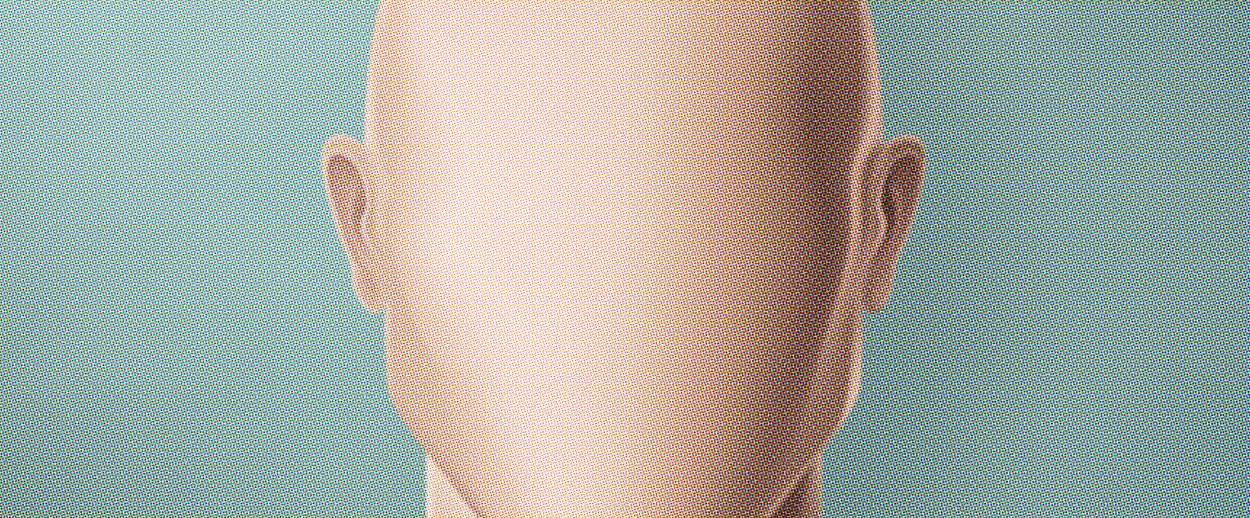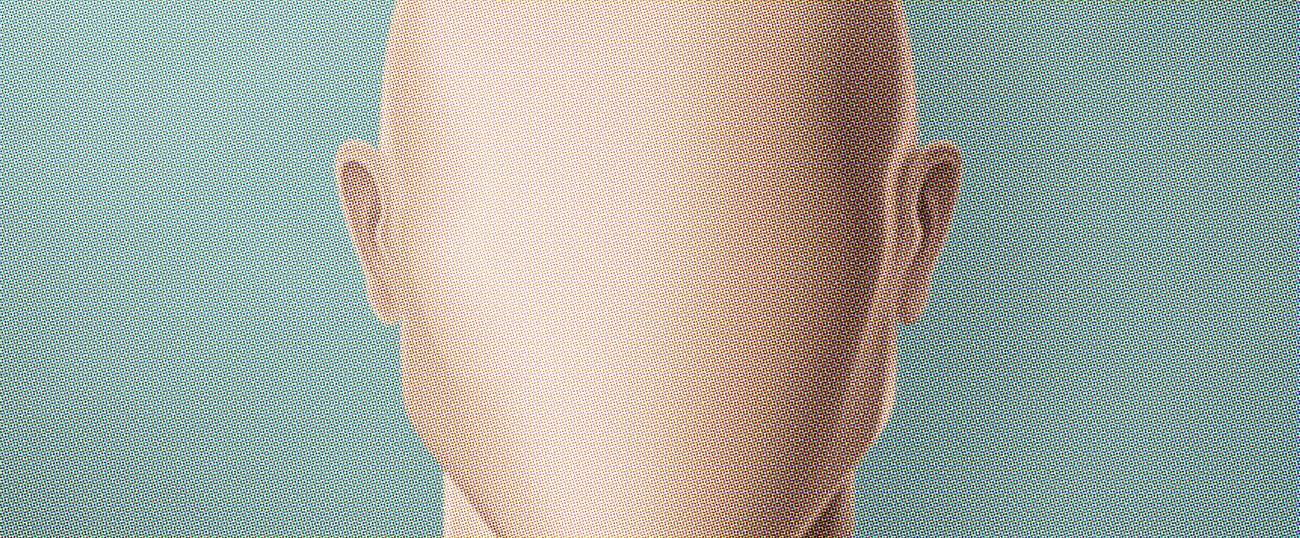Am I Like Rachel Dolezal?
‘I performed Jewish. I lived Jewish. And nobody owns the right to tell me if I am Jewish or not.’




I
I was born three years after the Soviet Union was dissolved, in Tatarstan, a predominantly Muslim republic in Russia, some 1,100 kilometers east of Moscow. Both my parents are Russian. However, I am Jewish.
When I was 11, my parents divorced and I stayed with my mother. She soon met another man, who later became her partner, and then her husband. He was Jewish. Or, rather, I was told that he was Jewish. “What should I do with it?” I thought, because I never heard of anything called “a nation,” or “an ethnicity” before. I started questioning him about what it meant, but he, being one of millions of Soviet Jews whose parents and grandparents had abandoned all Jewish practices, was unable to tell me much. I started learning on my own from books, mainly about contemporary Israel.
The following year I went to a new school on the outskirts of Moscow. Students there were split into two competing categories—guys from the North Caucasian republics of Russia and those who considered themselves properly “white” Russian and looked down on anyone who was “black,” like the kids from the Caucasus. Ethnic clashes occurred daily after school. I told everyone I was Jewish. This placed me outside the Russian/North Caucasian binary but created a minority of one. I endured two years of anti-Semitic mockery and some physical violence. Somehow, though, I stuck with my Jewish self-identity. It was public at school and private at home: I no longer talked to my stepfather about his Jewishness, or mine.
When I was 14, I started attending a different school. This was a well-known, competitive Moscow school, where many of the students were Jewish, some also coming from families of former dissidents. No one ever asked if I was Jewish: It seemed assumed. Over the years, though, some differences emerged between me and the other Jewish teenagers at the school—most of them had at least a surface familiarity with Jewish ritual, and most had relatives in Israel. I made up a back story to explain these things away. In this story, it was my biological father who was Jewish (as was my stepfather). We had lived in Tel Aviv until I was 5. I even found a preschool that I had supposedly “attended.” Everyone, literally everyone—except for my parents—believed that I was Jewish and a former Israeli: My friends were hanging out with a fellow Jew, my lecturers were teaching me among many Jews, my girlfriend was dating a fellow Jew. Later, during my second year at university, my tutor, a prominent Russian scholar, said to me, “You must be careful in your statements because you represent the Israeli community among the students of our university.” I indeed represented it, though the Israeli community, if there was one at my university, hardly knew about it.
I was maturing, and so was my Jewish identity. I was reading books, going to events and talking to people, everything connected with what I found the most appealing and interesting part of Jewish history—European prewar Jewry and the modern State of Israel. I knew more about Israeli culture and history than most of my peers. I was accepted as Jewish at the Jewish cultural center in Moscow, through which I got free Hebrew lessons. I was invited to Jewish holidays and ignored those invitations because I was unfamiliar with the ritual and also because I felt I was not ready to join in religious ceremony. I was among five people present at a meeting held by the dean of the faculty of Jewish studies at Moscow State University, where scholarship options for Jewish students were discussed. I worked for a Jewish media outlet. I was living a secular Jewish life, but I also happen to believe in God. This meant that eventually I would ask a congregation to accept me for giur, a conversion ceremony.
I did it last October, when I moved to Amsterdam to study there. I was now 19. After three meetings with different rabbis and seven months of processing my request, the Liberal Congregation of The Netherlands (Liberaal Joods Gemeente) rejected my request for conversion. Officially I was told that LJG “prioritized the process for Jewish father, Jewish background or a Jewish spouse.” Another reason was, as a rabbi has explained to me a month later, that, roughly speaking, I am not religious enough. Later, the LGBT shul, Beit HaChidush, rejected me as well. Thus I learned that I did not have a “Jewish background” despite years of living as someone who was Jewish.
Over the months when my case was being discussed, my girlfriend and I broke up and I decided to tell her who I really was. But then I realized there was nothing to tell. There was no story, no “dual life”: just me, my identity, and my life. I told everything to her, and then—in a few weeks—to my closest friends, as well as to my parents. I felt liberated as never before. They finally knew what kind of Jew I am.
II
What is my Jewishness? What was it? Could I have picked another identity when I was 12 years old and wanted to be different from the others if my mother’s partner had been, say, Georgian? Probably.
If being Jewish is a matter of biology, my DNA test clearly tells me I have 0 percent of Jewish ancestry (I have checked).
If being Jewish is a matter of a family, then I am not Jewish, because I was not raised Jewish. And I am, because my stepfather, who has indeed raised me, is Jewish.
If being Jewish is a question of religion, then I am not Jewish, because I never took part in religious ceremony, I never attended a service at a synagogue before moving to The Netherlands, I never studied at a Jewish religious school. And yet I am, because I believe in the Jewish God.
If being Jewish is a matter of social recognition, then I am not Jewish, because Dutch congregations refused to accept me as a Jew. And I am because everyone who knows me in Russia knows me as a Jew.
If being Jewish is a matter of belonging to a nation, then I am not Jewish, because there is not a single document that says I am Jewish. And I am because every time a terrorist attack happens in Israel, I rush to call my friends there, and because I consider the occupation of Palestinian lands, which must end, and the Israeli housing crisis, to be pressing social issues of my time.
If being Jewish is a matter of appearance and visibility, then I—with blond hair and Scandinavian looks—am not Jewish. And I am, because sometimes I wear a kippah and it feels just right.
If being Jewish is a matter of culture, then I am not Jewish: I am not against intermarriage, I don’t do “things that only Jews do,” I am not acquainted with Jewish theater and Jewish cuisine. And I am, because I love Agnon and the Barry sisters, Waltz With Bashir and Rutu Modan. Because I feel Israel is my home, a big shul, and I will strive to make it a better, more tolerant, and peaceful place.
If being Jewish is a matter of anti-Semitism, then I am not Jewish, because the hatred I experienced would have been there if I had “othered” myself in any other way, not necessarily as a Jew. And I am, because I was told I should not exist because Jews, and not other group, rule the world.
If being Jewish is a matter of self-determination, then I am not only Jewish. I am European, Russian, white, bisexual, liberal, post-soviet, middle-class, a student. I am dozens of other identities. And I am Jewish.
III
Following the story of Rachel Dolezal this week I was thinking about how the uncertainty experienced by a person who has to perform many identities simultaneously is compensated with locating oneself in certain and defined boundaries, be those national, sexual, racial, social, or another sort. In case of Rachel Dolezal, this mechanism is extended to other person: She is told she can be either black or white, and this must be clear to society around her.
During one of the Amsterdam meetings with a rabbi I was told by a member of the congregation that I do not know what being Jewish is, that I was born in a time of little anti-Semitism, that I didn’t experience “enough” of it. The same is being said about Rachel Dolezal—that before becoming a black woman she wasn’t a black girl, that she didn’t live a black life but performed one. I can’t and do not want to get into Rachel Dolezal’s head. But her intentions do not matter: Nobody exclusively owns blackness and no one can tell Rachel Dolezal who she is, as well as demand from her to decide who she is. It was not only she who “performed” black, it was everyone around her who performed her blackness, too.
In Judaism, a person is considered Jewish if born from a Jewish mother or has undergone a conversion procedure. Speaking in nonreligious definitions, the biggest institution that believes it has the right to determine who is a Jew is the State of Israel. In 1962, Father Oswald Daniel Rufeisen (“Brother Daniel”), a Jew who converted to Catholicism during WWII, applied for Israeli citizenship under the Law of Return. During the hearings, four justices intended to set, as one scholarly version describes it, “some objective boundaries to the concept of Jewishness,” while Haim Cohen was the only justice arguing that in the absence of secular criteria of who is a Jew, such a definition should be “a subjective test.” The court ruled 4 to 1 that a Jew who voluntarily converted to Christianity cannot be considered a Jew under the secular Law of Return. Oswald Rufeisen was denied Israeli citizenship, but no “objective boundaries” were set to the secular definition of who is a Jew. Israeli Law of Return is based on the Nuremberg Laws’ definition of a Jew, though more than 70 years passed since the Holocaust. For Israel, it is still Nazi Germany that defines who is a Jew and who is not.
Some weeks ago my stepfather and my mother received aliyah visas to Israel, which will automatically turn into Israeli citizenship when they pass through customs at Ben-Gurion airport this July. Under Nuremberg Laws, my mother, who never expressed a wish of converting to Judaism or acquire a Jewish identity, is Israeli and will now be treated as a Jew every moment she will take out her Israeli passport everywhere in the world. Her voluntary decision to enter a Jewish family made her Jewish in the eyes of the law. But my voluntary decision and earnest desire didn’t: I, in turn, will be encountering obstacles to being recognized as Jewish on every step, both in Israel and outside of it.
But for me it doesn’t matter anymore. I performed Jewish. I lived Jewish. And nobody owns the right to tell me if I am Jewish or not, or demand me to choose. Not anti-Semites, not a single congregation, not the State of Israel.
Avraham Osipov-Gipsh is a Russian journalist. He lives in The Netherlands.